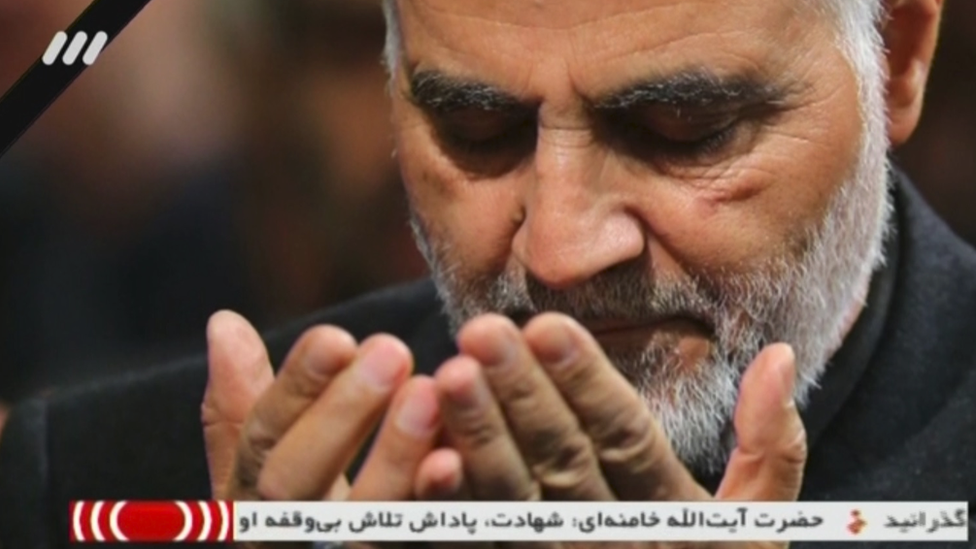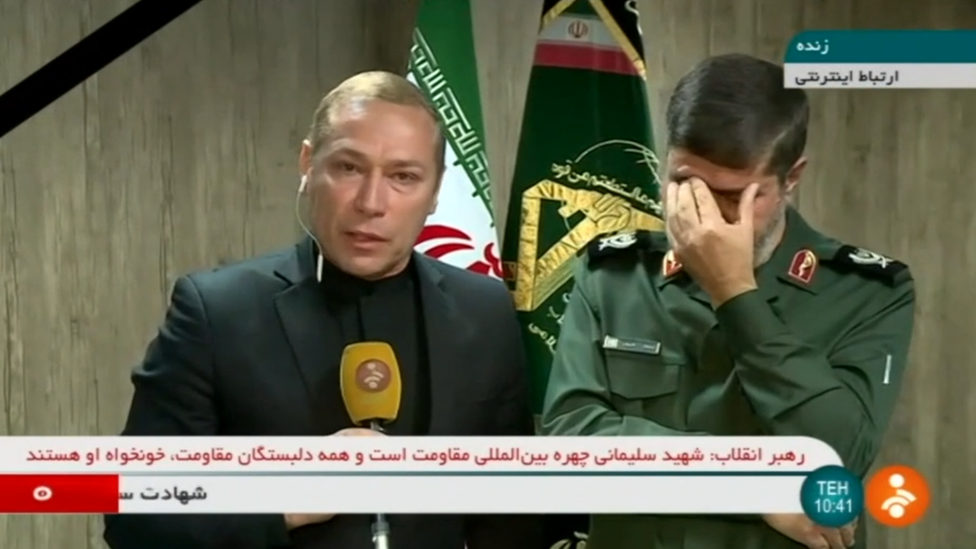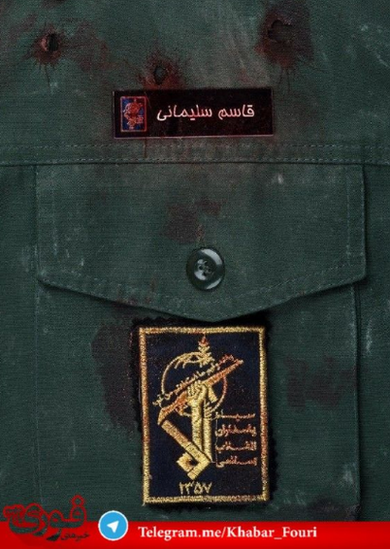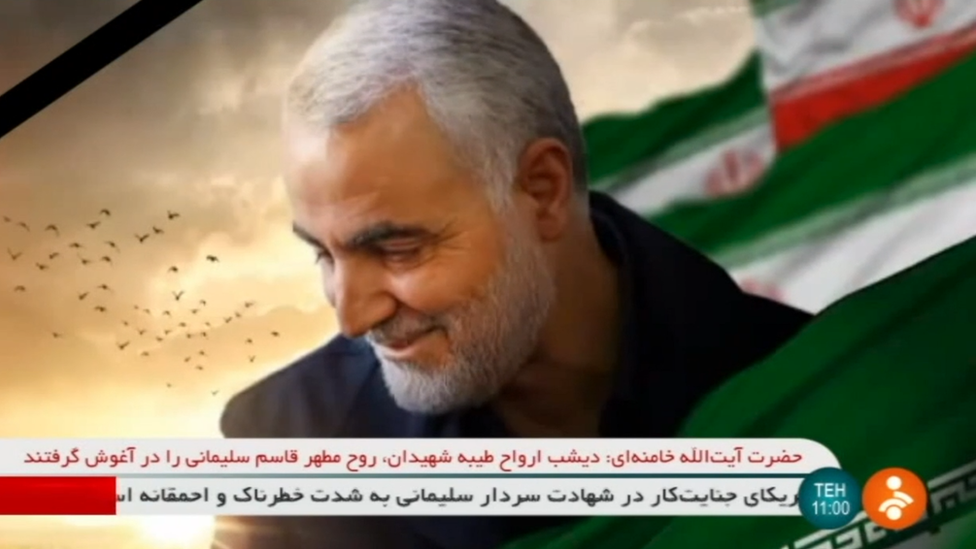Defiant Iranians mourn 'martyr' Soleimani
- Published

State TV has used a black ribbon as a mark of mourning
The death of Qasem Soleimani dominates Iranian media, with the state broadcaster draping his image with a black ribbon of mourning and repeating threats by Supreme Leader Ayatollah Ali Khamenei to inflict "severe revenge" on the United States.
'Glorious martyr'
All government TV channels are running tributes to the "glorious martyr" and commander of the elite Quds Force, who was killed in a US drone strike at Baghdad Airport.
They highlight his role in the wars in Iraq and Syria in particular, where he came to international prominence for leading Iran's military assistance.
The IRINN rolling news channel and international Press TV have been broadcasting archive footage of Soleimani, emphasising his closeness to Ayatollah Khamenei and his leadership in conflict zones.
TV coverage includes reaction from Iranian diplomats and commentators, all naturally taking the official line that the United States should expect retribution.
One Tehran University professor repeatedly warned Western civilians, especially Americans, to "leave the Middle East at once". The fact that he did so in English on Press TV added immediacy to the threat.
He was one of several analysts on both domestic and international channels to predict that the killing "heralds the end of a US presence in the region".
'The best death'
Some officials openly expressed their grief - Ramezan Sharif, the spokesman for the Revolutionary Guards, broke down on live TV and was comforted by a clearly moved reporter.
General Sharif later recovered his composure sufficiently to issue a threat to Israel, which various Iranian officials have accused of helping co-ordinate the drone attack.

Ramezan Sharif breaks down on live TV
"The joy of the Americans and the Zionists [Israel] will not last long, and will turn to mourning," he announced, adding that the Revolutionary Guards will not be stopped by the death of one man.
"The determination to take revenge on the usurper Zionists and criminal will be all the greater," he said, as the Guards will "open a new chapter" with many eager to continue Soleimani's legacy.
The main news channels showed a live gathering at a mosque in Gilan Province, where the preacher reassured worshippers that "the best death is martyrdom for God" and that "great men prefer martyrdom to death by natural causes, cancer, accidents or old age".
As the day went on, the TV channels aired high-profile Friday Prayers preachers who concentrated on the themes of revenge and continuing Soleimani's work,
'Can't stop crying'
Pro-government social media have been echoing the official response of grief and pledges of vengeance, with the Persian hashtag #severerevenge, external trending since news of Soleimani's death was confirmed.
The Khabar Fouri Telegram channel posted a bloody image of a bullet-ridden Revolutionary Guards uniform, external bearing his name, and former Guards commander Mohsen Rezaie tweeted that Iran would take "firm revenge on America, external".

The nametag says 'Qasem Soleimani'
Leading military reporter Hossein Dalirian tweeted that he "can't stop crying, external".
'Architect of massacre'
But other voices on social media rejoiced at Gen Soleimani's death.
Shahed Alavi, a journalist based abroad, tweeted "Today I'm a Syrian child screaming out the names of all the 500,000 people who died in the Syrian civil war, and after every name I will say: The architect of the bloody crackdown, the architect of the great massacre, has been killed, external".
Another drew parallels with reports that Iranian officials had demanded money for the return of the remains of protesters killed in the November anti-government demonstrations.
"I hope they charge Iran 40 million dollars to send the body back, then charge Iran for the rocket that killed him, external," he tweeted.

Video tributes try to highlight the martial and human aspect of Qasem Soleimani
BBC Monitoring, external reports and analyses news from TV, radio, web and print media around the world. You can follow BBC Monitoring on Twitter, external and Facebook, external.